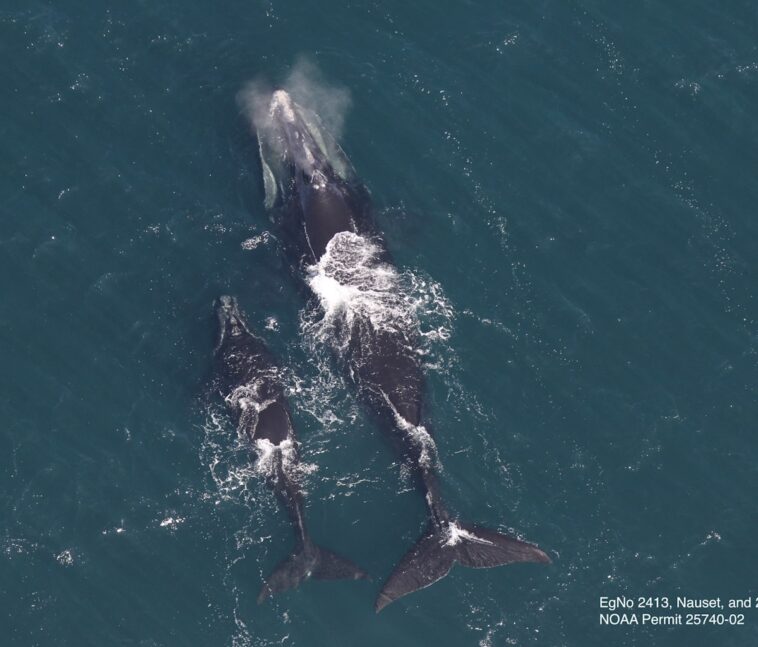A last note, even though it’s about firsts, on this calving season.
North Atlantic right whales have been crowding into Cape Cod Bay. As of last week, the Center for Coastal Studies said its staff had recently seen more than 80 right whales in Massachusetts waters, about a quarter of the imperiled species’ population.
On March 11, that count included whale No. 2413 (Nauset) and her calf. They are the first mom-calf pair spotted this winter in Massachusetts.
It seems these two are serious about being first.
They were the first mom and calf documented in the Southeast during the 2024-2025 calving season. The Clearwater Marine Aquarium Research Institute aerial survey team contracted by DNR photographed them off Blackbeard Island on Dec. 1.
Dec. 1 was the first day of DNR right whale surveys this winter.
It was only fitting, too, that the calf soon became the first biopsied this season. (Learn why we biopsy calves.)
Nauset and calf off Blackbeard Island Dec. 1 (CMARI/NOAA permit 26919)
Mom and calf would later safely swim the some 1,000 miles to Cape Cod Bay.
It’s a journey Nauset knows well. The North Atlantic right whale catalog lists her as 31 years old. This is her fifth calf. One of her other calves, a now 12-year-old named Monomoy (No. 4313), was reportedly also seen March 11 in Cape Cod Bay. Mom is nicknamed after Nauset Light, a restored Cape Cod lighthouse.
Right whales that calve in the Southeast — the species’ only known calving area — or otherwise spend all or most of the winter here migrate back to their feeding grounds in New England and Canadian waters. Cape Cod Bay is a hotspot, hosting “one of the largest feeding aggregations of right whales during winter and early spring,” according to the Center for Coastal Studies.




GIPHY App Key not set. Please check settings